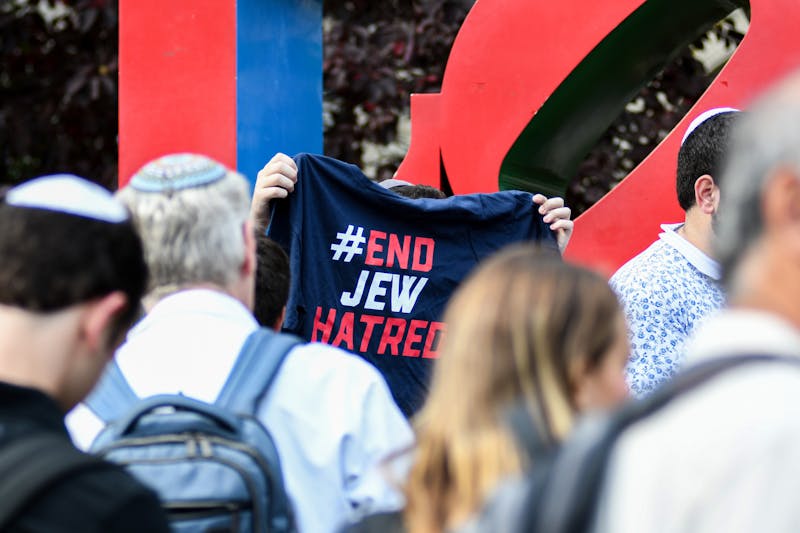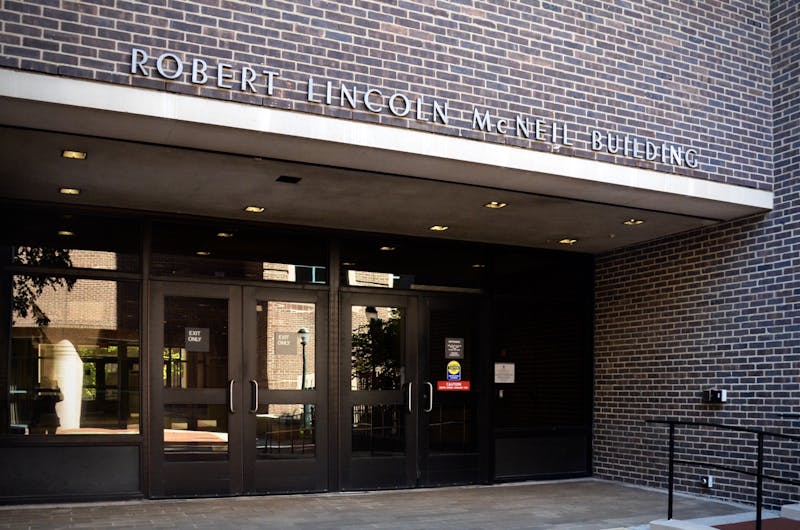
Fun fact: According to a 2005 mandate, every high school student in Philadelphia needs to take an African American history course in order to graduate. Philadelphia is a major city that is predominantly Black, with a rich history of key activists and movements for equal rights spanning centuries.
Usually during their sophomore year, high school students learn about significant historical periods and places, such as Reconstruction, Black Wall Street, and the Harlem Renaissance. Several years ago, during my sophomore year of high school, I, along with several of my peers, analyzed texts on locally and nationally renowned prominent Black leaders. Although Penn has an Africana Studies department in the College — where students can take a class to fulfill their History and Tradition sector requirement — this doesn’t do nearly enough to educate the undergraduate student body as a whole. Thus, I propose creating a similar mandate across all four undergraduate schools to take an African American history course that would focus on key figures and events in the Philadelphia region.
Incorporating an African American course requirement within the History and Tradition sector fulfills the basic tenants of the sector in the first place by, for instance, mapping out how Black people needed to persevere throughout different time periods and how challenges facing the community exist even today.
I am a month into AFRC 1177: Afro-American History 1876 to Present, and I’ve challenged my assumptions on how much there is left to learn about Black history in my native city. In just a short amount of time, I’ve learned about W.E.B. Du Bois’s time as assistant instructor at Penn, delved into respectability politics, and unpacked the mythos of biblical Ethiopia among newly freed people.
Learning about how Du Bois lived in Philadelphia and worked on his prominent piece “The Philadelphia Negro” on the same campus as mine makes him feel like less of a figure and more of a person. It’s becoming easier each day to contextualize his ideals and the things he fought for when imagining his life here decades ago, overcoming problems twice as difficult as mine.
Drawing from AFRC 1177, there is still so much to learn about and interact with in the city. Our final project consists of choosing a topic we explored at some point in the semester and interviewing a representative at a local Philadelphia institution. This institution can be a religious site, cultural center, or anything else that fits within our interests. Beyond educating students about the basic history of the city that they will be spending four years living in, the class can be another way to explore Philadelphia beyond the Penn bubble.
With all of its faults and imperfections, Penn is a leading institution that can further integrate with the local community by ensuring its students understand the historical importance of certain streets they walk down. Taking a class can educate a variety of students, like those studying in the United States for the first time, those who never had the opportunity to take an African American history course, or those like me who thought they knew everything there is to know about Black history. Rather than adding an unnecessary burden to meeting all of the general education requirements, a class that touches on basic and fundamental pieces of history will help students move through Philadelphia with a wider perspective on the predominantly Black communities they interact with.
Of course, no semester-long course can endeavor to solve all the problems of ignorance that some individuals will be hard-pressed to abandon. Four months of readings and multimedia on the experiences of Black people in the United States couldn’t be enough to explore all of the varied and complex narratives that exist within any collective group. Plus, there will certainly be some people who question the fairness of being forced to study one group’s history over any other.
However, it can offer individuals the space to challenge their misconceptions and educate themselves on the systemic issues they had no idea how to speak about. This class can be a stepping stone for students to continue taking classes in the history department to learn about other marginalized communities and their experiences here in the United States.
Some students have gone their entire lives without ever being exposed to some of the stories and real life experiences abundant in so many parts of Philadelphia. I believe it shouldn’t be on students going through those issues to try and begin undoing that.
HANADI ABDULKADIR is a College sophomore studying international relations from Philadelphia. Her email is hanadia@sas.upenn.edu.
The Daily Pennsylvanian is an independent, student-run newspaper. Please consider making a donation to support the coverage that shapes the University. Your generosity ensures a future of strong journalism at Penn.
Donate








